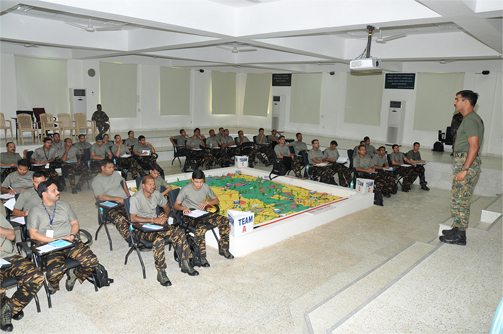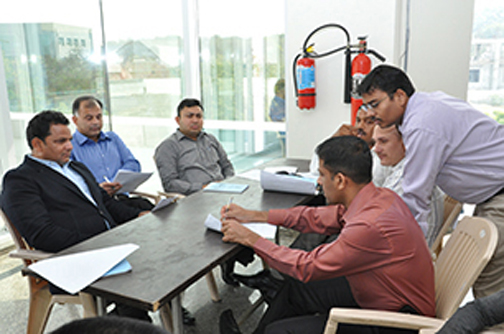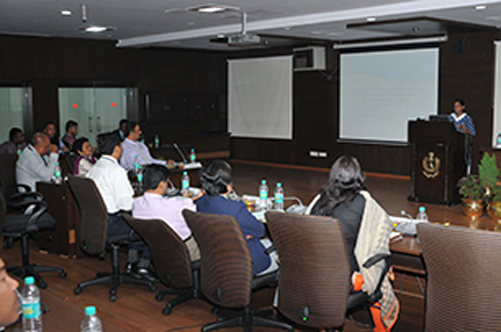INDIAN POLICE INSTITUTE
A Vibrant Professional Institute for Police Science Research and Evidence Based Policing
The Indian Police Institute is a professional development institution and a Resource Centre for applied research in police and security sciences, dedicated to promote high quality research in policing sciences including forensic sciences, cyber forensics, cyber security etc. One of the major areas of work is evidence-based policing, standards-setting of police services through scientifically designed service-delivery standards and promoting a culture of professional excellence within the rank and file. The Institute focuses on all-round development of the police at different levels, through research into the frontiers of science and technological applications for improving the quality of field policing and spreading the knowledge through learning strategies that combine theory with practice, aimed to equip police officers with scientific skills to cope with complex problems of policing in a fast changing world. The Indian Police Institute recognizes that realization of the SMART policing vision of the Prime Minister can be achieved only through empirical research into the frontiers of science and technological applications for improving the service delivery to citizens.

Nurturing a culture of inquiry and critical thinking
The Indian Police Institute seeks to nurture a positive and vibrant environment that celebrates creativity and kindles critical thinking, an environment that excites the new generation of police officers, and inspires ‘what is new and what is next’ in technology-driven policing. A rejection of the ordinary, an uncompromising commitment to high quality in whatever it undertakes and at the same time, a willingness to examine old assumptions against evidence, will be the Institute’s guiding principles.
The Institute will bring together serving and former police officers as well as professionals and researchers from multiple disciplines and would provide them with ample opportunities to debate, ideate and explore the best ways of dealing with the policing challenges facing the country, and to share ideas, experience and best practices, encouraging a culture of inquiry and critical thinking and resulting in a cross-fertilization of ideas, analyses and experience sharing across the police leadership in the country.

Centres of Research and Learning
The Centres of Research and Learning (CORAL) are aimed at generating and developing specialized domain knowledge and expertise, inspiring and promoting scientific and technological innovation, excellence and capacity building through applied research in specific functional areas of policing. Focusing on well defined, creative and potentially ground-breaking set of research objectives, and continuously working on improving the expertise and knowledge resources, the Centres will engage in studying, reviewing and unravelling the challenging questions confronting today’s policing.

Leadership and Mentoring
Each Centre with a team of police leaders and researchers, promotes collaborative learning from best practices around specific focus areas to drive positive results. The Centres set the standard for research-informed policing and provide optimal environments for developing the next generation of innovations in policing and related research. They train and educate police officers, assist in doctrine and knowledge base development, document the lessons learnt and test and validate concepts through experimentation and research. The Centres collaborate with different Police Training Institutions, Universities and other well-known Institutions of Learning and Research.
Some areas for setting up Centres of Research and Learning will include Police Ethics, Responsive, Inclusive and Accountable Policing, Gender Related Issues, Community Policing, Conflict Resolution and Conflict Management, Counterterrorism, Prevention and Investigation of Corruption, Cyber Security and Cybercrime, Forensic Sciences, Social Media, Human Trafficking, Police Science and Technology Development, Crisis Management and Disaster Management, Paramilitary Forces, National and International Security etc.
The Iterative Process
The Centres of Research and Learning carry out the iterative process of piloting and prototyping to turn ideas into reality. Once an idea has been vetted through research and repeated testing, efforts are made to scale and replicate the innovation as appropriate. The Institute makes proactive efforts to push available research evidence into practice through teaching, training and outreach on one hand and to make use of research evidence to inform advocacy and other means of influencing policy, on the other.

